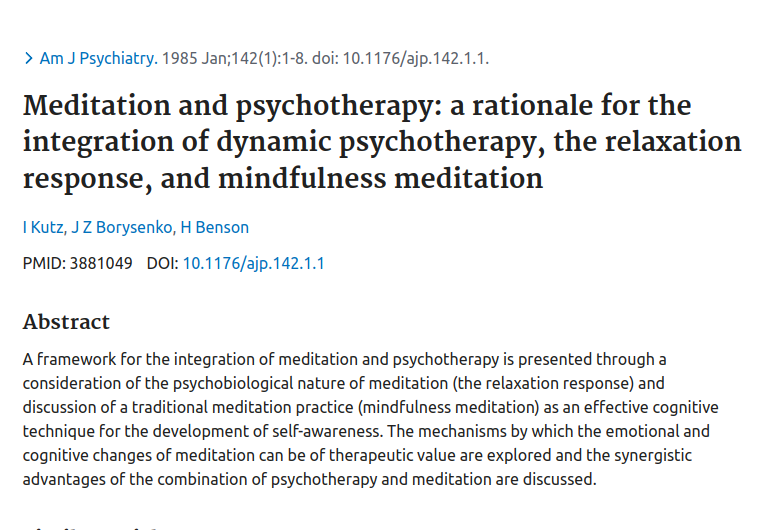Publication
The American Journal of Psychiatry
Abstract
A framework for the integration of meditation and psychotherapy is presented through a consideration of the psychobiological nature of meditation (the relaxation response) and discussion of a traditional meditation practice (mindfulness meditation) as an effective cognitive technique for the development of self-awareness. The mechanisms by which the emotional and cognitive changes of meditation can be of therapeutic value are explored and the synergistic advantages of the combination of psychotherapy and meditation are discussed.
Web and Email Links
Related Listings
Journal
Scientific American
A very readable introduction to the scientific findings in neurology about primarily Buddhist forms of meditation.
Journal
Psychiatry
In the Western world today, there is a growing interest in nonpharmacological, self-induced, altered states of consciousness because of their alleged benefits of better mental and physical health and improved ability to deal with tension and stress. During the experience of one of these states, individuals claim to have feelings of increased creativity, of infinity, and of immortality; they have an evangelistic sense of mission, and report that mental physical suffering vanish (Dean). […]
Journal
Behavioral Medicine
Over the last 20 years, medical researchers from a variety of disciplines, including behavioral medicine, neuro-immunology, neuroendocrinology, social medicine, and psychiatry, have converged in an effort to produce greater understanding and acceptance of the effects of psychological factors on physical health. Many in the medical profession have remained somewhat skeptical, claiming that psychological components of healing are largely "folklore", unsubstantiated by hard evidence. The […]

